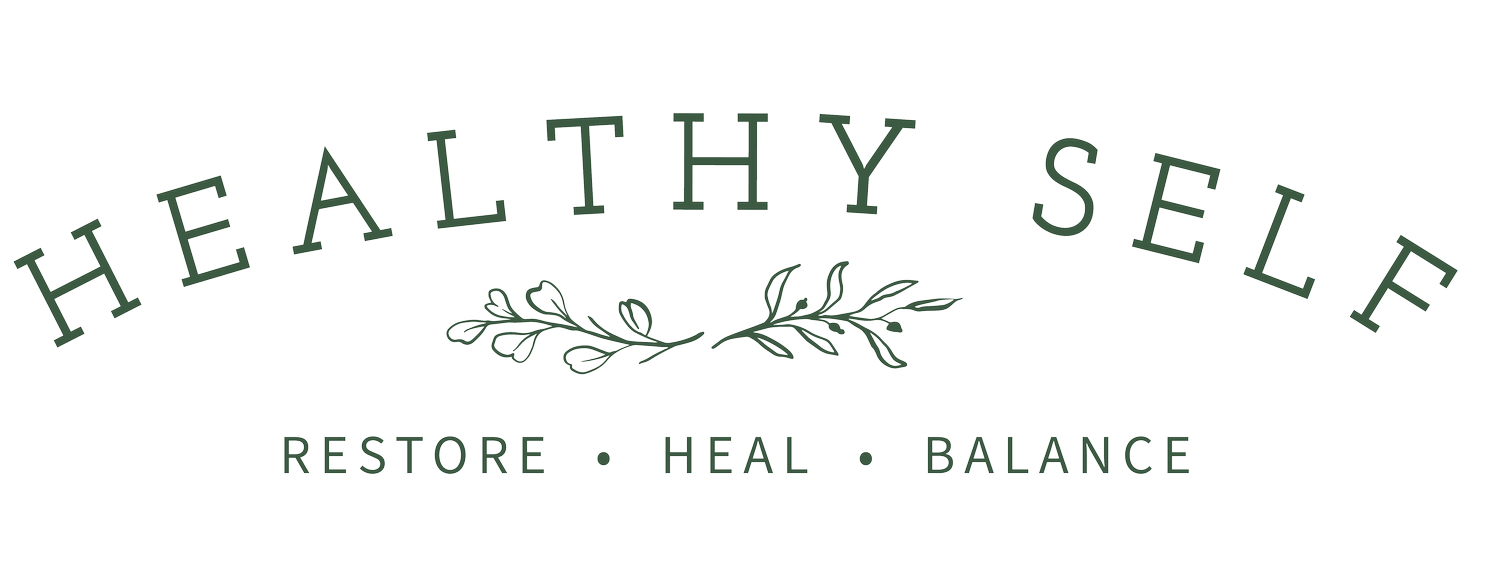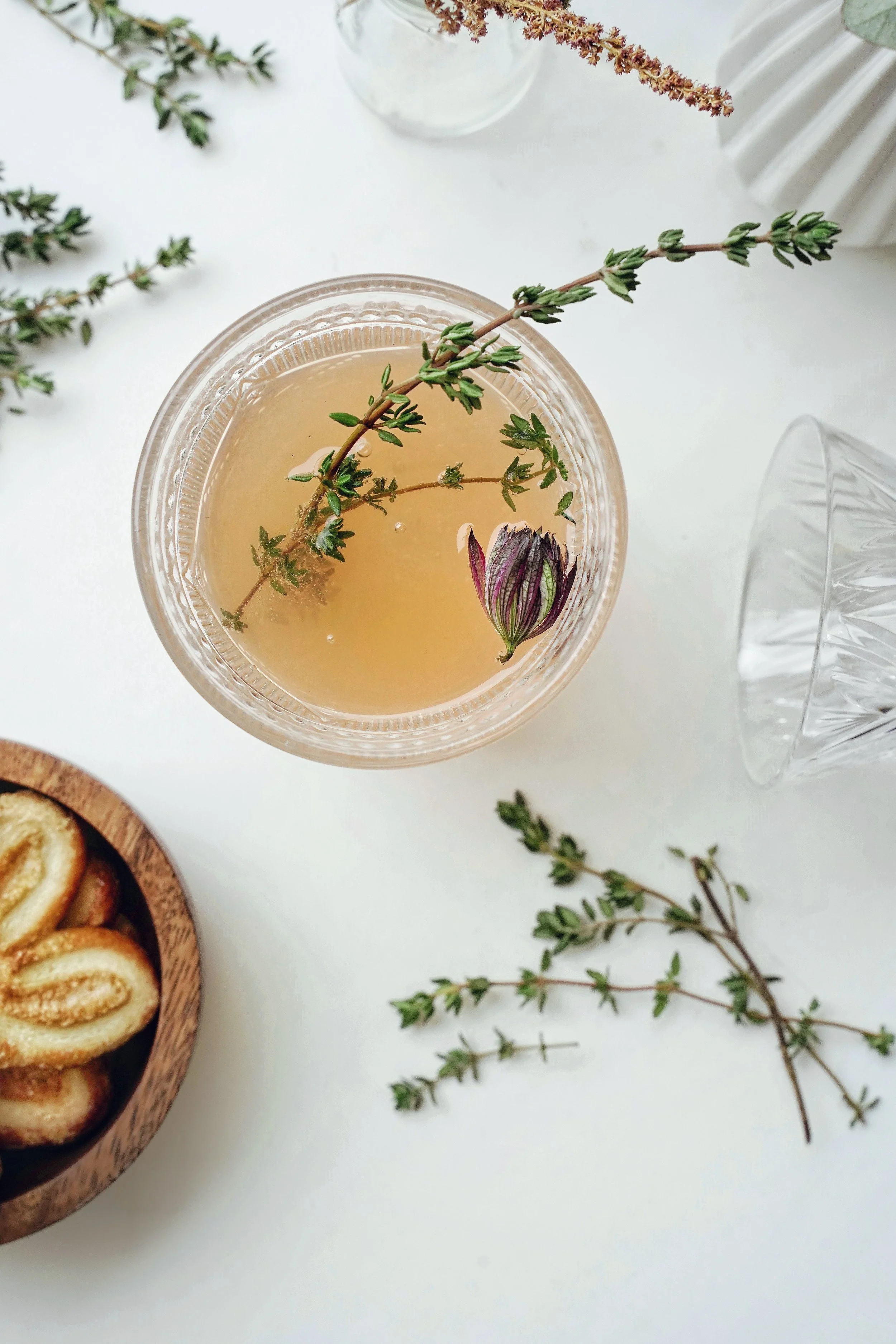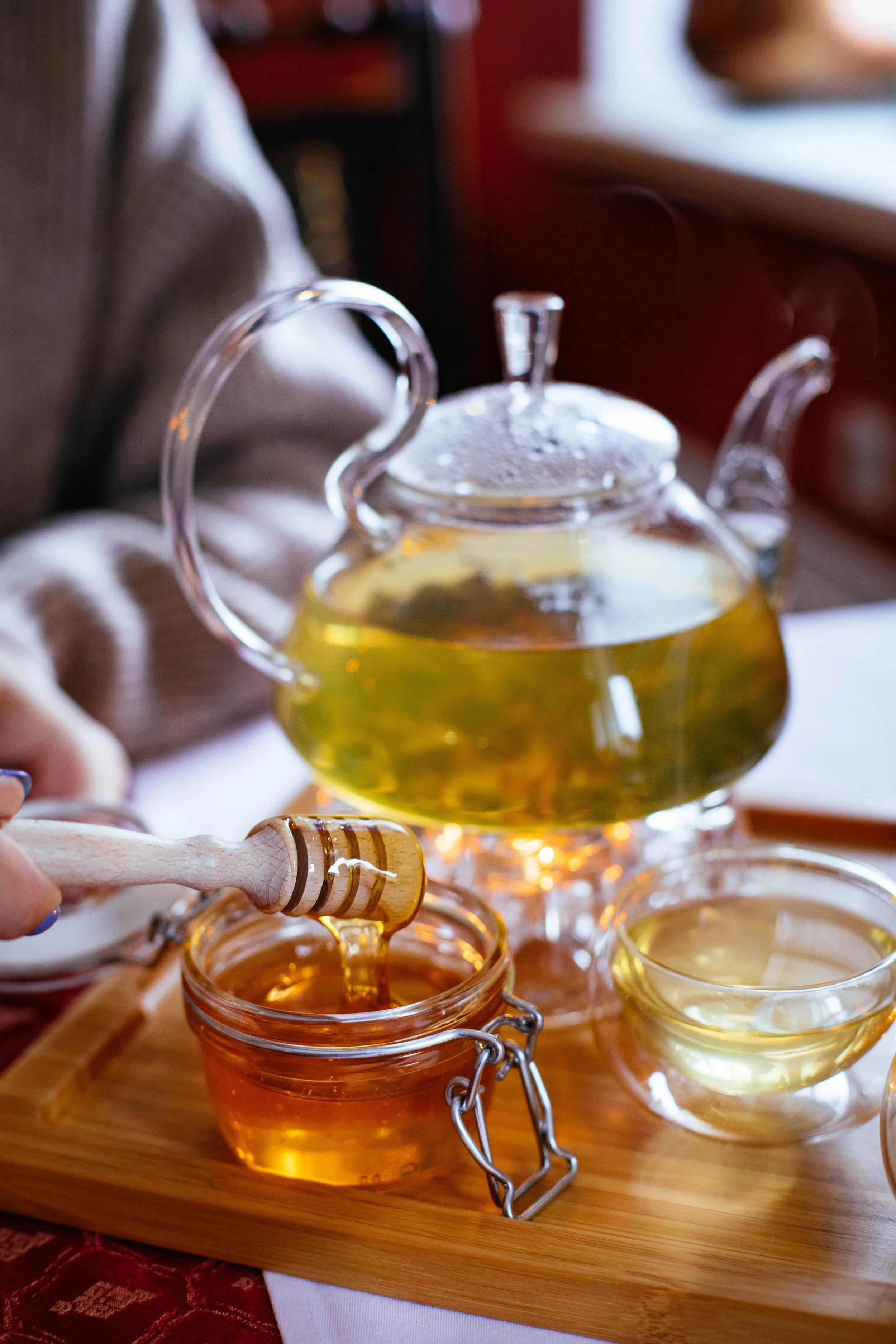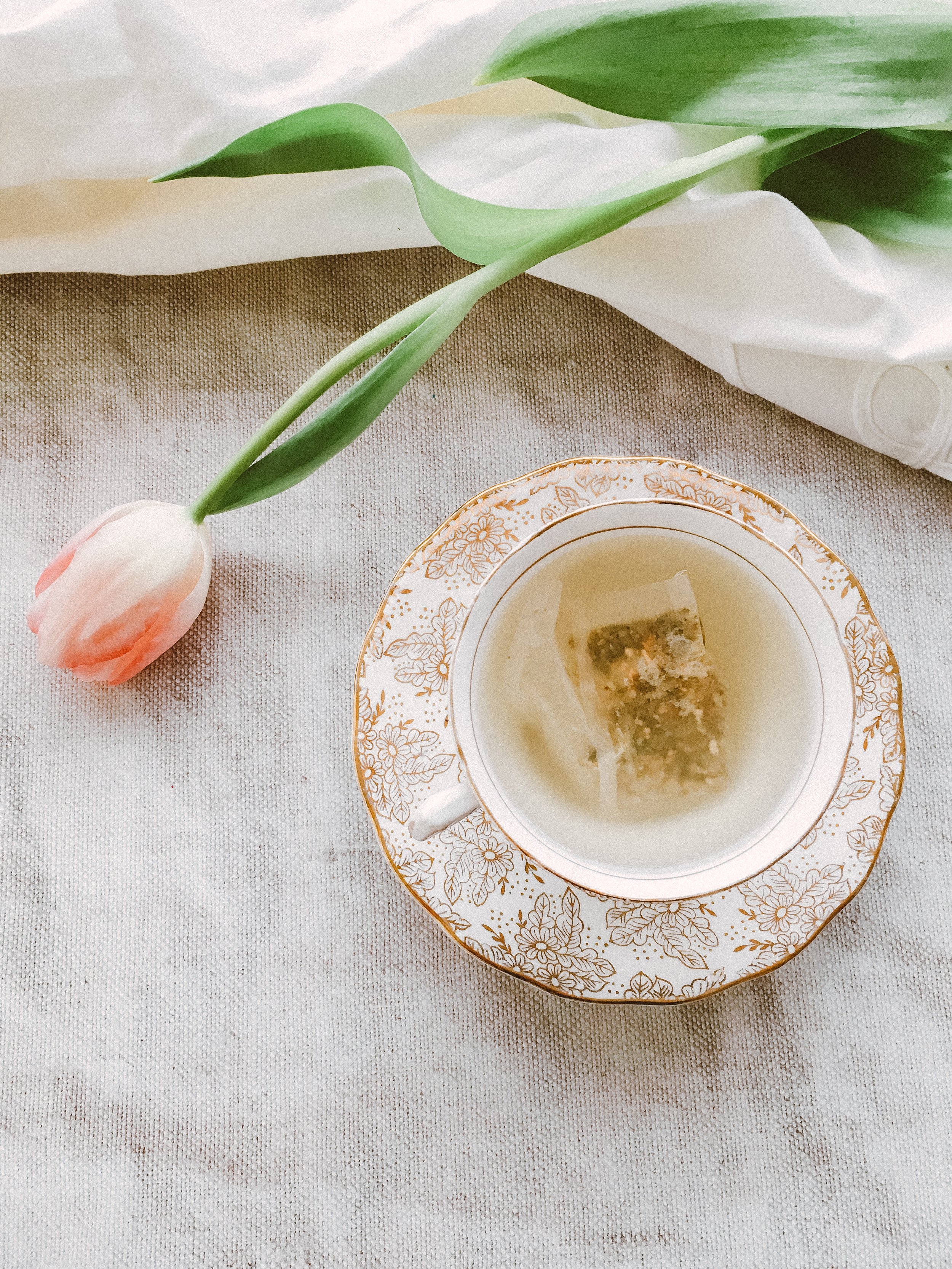Herbal Tea Benefits
1. Chamomile tea
Chamomile is an all-time favorite, and used mostly for its calming effect. Chamomile may help reduce inflammation, treat stomach pain, aid sleep and promote calmness and muscle relaxation.
2. Peppermint tea
Peppermint is used for its refreshing and calming properties. It has a lightly sweet and refreshing flavor that may help with bad breath. The most important benefits include stress relief, aiding digestion and soothing stomach, boosting the immune system and relieving the symptoms of common cold.
3. Rosehip tea
Rosehips are a great source of vitamin C and antioxidants. Studies suggest that the antioxidant activity may be higher than those of popular berries such as blueberries or black currants. They may help with achieving weight loss goals, protect the brain and skin from aging.
4. Rooibos tea
This tea, grown exclusively in South Africa, has a distinctive earthy and sweet flavor. This tea is used not only for its flavor, but for its potent antioxidant activity and many potential benefits – from reducing cholesterol and high blood pressure, to treating colic in infants and increasing airflow to the lungs.
5. Ginger tea
The main use of ginger tea is to help with upset stomach and nausea and for adding a spicytouch to tea blends, especially chai tea. But ginger has many more potential benefits–from protecting the brain and heart, lowering blood sugar and anti-cancer properties.
6. Cinnamon tea
Studies showed that cinnamon has anti-oxidant and anti-inflammatory properties and may help with lowering blood pressure and protecting the heart.
7. Lemongrass tea
Lemongrass, a delicious herb used both as a spice and tea may help relieve the pain and anxiety, lower blood pressure, act as antioxidant and help with weight management. Studies showed it also has antibacterial and anti inflammatory properties.
8. Tulsi tea
Tulsi or Holy Basil is an adaptogenic herb used for its ability to reduce stress naturally and benefit the overall health. Adaptogenic herbs are often used for dealing with lifestyle-related diseases, especially different types of stress. Tulsi has anti-inflammatory, antioxidant, antidiabetic, anticancer, antimicrobial and radioprotective properties.
9. Rosemary tea
If you love using rosemary for cooking, you will love a cup of rosemary tea too. Rosemary may provide several benefits–from helping with Alzheimer’s disease to treating anxiety.
10. Olive leaf tea
This tea is made from dried olive tree leaves. It has a lightly sweet and refreshing taste. It may have potential use in preventing cancer, lowering cholesterol and blood sugar, and helping with weight loss.
11. Barley tea
Barley tea or mugicha is one of the most popular herbal teas in eastern Asia. This delicious tea is commonly used for aiding digestion and promoting weight loss.
12.Licorice tea
Licorice root tea is one of the naturally sweetest teas in the world. Traditionally, it has been used for treating stomach pain and cough.
13.Eucalyptus tea
Traditionally, eucalyptus has been used for its antiseptic and antibacterial properties and for different breathing and lungs related problems–from treating the common cold and flu to sore throat and pneumonia.
14.Iceland moss tea
Iceland moss is one of the potentially most beneficial herbs for treating a sore throat and dry cough, and may provide an instant relief. Another interesting use is treating the loss of appetite.
15.Gingko tea
Traditionally, gingko is used for treating brain related problems mostly caused by aging. Interestingly, it’s one of the oldest trees in the world. Although there is not enough scientific research to confirm the benefits, gingko is still one of the most popularly used herbal remedies for memory problems.
16. Ashwagandha tea
Similar to tulsi, ashwagandha is an adaptogenic herb too. The most common use is for treating stress and anxiety and sleeping problems. Studies have shown it may help protect the brain and heart, improve memory and even improve muscle strength.
17. Sage tea
Sage tea has been traditionally used in many countries for relieving pain and fighting infections. Research shows that it may be beneficial for “depression, dementia, obesity, diabetes, lupus, heart disease, and cancer“.
18. Raspberry leaf tea
Raspberry leaf tea is mostly used by pregnant women to shorten the labour. Although drinking this tea is considered safe in most cases, more research is needed to see can it actually help and how safe it is.
19. Valerian root tea
Valerian root is one of the most common remedies for treating insomnia. The root is used for making pills and for making tea. It’s considered one of the strongest herbs for treating sleep disorders.
20. Anise seed tea
Anise seed has traditionally been used for problems related to breathing and digestion. Because of the sweet flavor it’s often used instead of licorice for sweetening other food products and sweets.
21. Elderberry flower tea
Elderflower tea has antibacterial and antiviral properties. Flavonoids in elderberry flowers and berries may help in treating influenza, bronchitis and pain relief.
22. Linden flower tea
Linden flower tea is often used for treating common cold, fever, cough and anxiety. This tea has a thick texture because of the high mucilage content that may help soothe the throat.
23. Turmeric tea
Turmeric is often used as a spice, as an ingredient in tea blends and for making turmeric milk tea. Studies showed it may be beneficial for protecting the heart after some heart surgeries, reducing skin irritation and pain.
24. Moringa tea
Moringa is a “superfood” that may offer many benefits. Studies suggest it may be especially helpful with heart diseases, diabetes, cancer and fatty liver.
25. Lavender tea
Lavender is most commonly used for relaxation, relieving anxiety, calming and lifting mood. It blends well with other calming herbs such as chamomile.
26. Pine needle tea
Pine needle tea is one of the most unique herbal teas. If you like the scent of a fresh summer pine forest, this tea will without any doubt bring a smile to your face. Pine needle tea may offer similar benefits and act as an antidepressant and lift the mood.
27. Echinacea tea
The most common use of echinacea tea is for treating symptoms of common cold and for treating depression.
28. Honeybush tea
Honeybush, another delicious tea from African continent, has a lot in common with rooibos tea. It’s used for treating coughs and for calming effects.
29. Hibiscus flower tea
Zesty, beautiful and full of character, hibiscus is one of the most popular flower teas around the world. Research showed it may help with lowering blood pressure and cholesterol.
30. Osmanthus tea
Beautiful small yellow flowers of an osmanthus tree may boost the immune system and help fight allergies. Tea has a very delicate peach flavor.
31. Chrysanthemum tea
Chrysanthemum tea is one of the most popular flower teas in China. Studies showed it has a strong antioxidant activity and may help fight free radicals. It’s used for its cooling effect, especially during warm seasons, for potential sedative effect and lowering blood pressure.
32. Rose tea
The queen among flower teas, rose, is rich in antioxidants and may help reduce the oxidative stress, benefiting the overall health.
33. Jasmine tea
The health benefits of jasmine tea include treating anxiety, fever, sunburn and stomach ulcers. However, jasmine has mostly been used in traditional medicine, and more research is needed to confirm the benefits.
34. Yarrow tea
Yarrow is mostly used in Europe and North America to treat wounds, soothe the upset stomach, and to relieve menstrual cramps and pain.
35. Stinging nettle tea
Nettle tea may help reduce the risk of heart diseases, cancer and diabetes, and has a positive effect on blood pressure and even psychotic disorders.
36. Dandelion tea
Studies showed that the dandelion root may help destroy cells of some cancers and have a potential of becoming a part of alternative treatments.
37. Cranberry tea
The most common use of cranberry tea is treating some bacterial infections, mostly in urinary tract infections in both infants, children and adults.
38. St John’s Wort tea
St John’s wort is of the most used herbal remedies for treating depression, both mild and moderate. Studies showed that in some cases it may be as effective as standard medicine, but ineffective in others.
39. Yerba mate tea
A national drink in many South American countries, yerba mate is one of rare herbal teas containing caffeine. It contains antioxidants and may be beneficial for diabetes and weight loss, aid in digestion and even help with depression.
40. Guava tea
In traditional medicine, guava leaf tea has been used for treating diabetes and heart disease and parasite infections.
41. Gotu kola tea
Gotu kola or Centella asiatica is another adaptogenic herb and is believed it may have a good impact on the brain, including treating anxiety, depression and enhancing memory.
42. Marshmallow root tea
Marshmallow root tea is often used for treating dry cough and inflammation in throat and stomach.
43. Thyme tea
Thyme is one of the signature herbs of Mediterranean cuisine. As tea, it may help with problems related to “respiratory, nervous, and cardiovascular systems“.
44. Calendula tea
Because of its calming, soothing and healing properties, calendula tea externally is used for treating inflammation and for gargling, and internally, for soothing the stomach.
45. Kuding tea
One of the most bitter teas in the world, Kuding, may be one of the best teas for skin. Research showed polyphenols in kuding tea may help protect skin from damage caused by UVB rays. The second most important benefit is potential help with losing weight.
46. Jiaogulan tea
Jiaogulan tea is one of the newer herbal teas in the world of home remedies. It has already shown many potential benefits. Studies showed that jiaogulan tea may have a great potential in treating many cancers. It’s often described as a tea good for overall health.
47.Passion flower tea
The most common use of Passion flower tea is as a sedative and as a sleeping aid.
48. Kava tea
Kava, another sleepy time and calming tea is used for treating insomnia, anxiety and promoting overall relaxation. Although studies showed it may be beneficial for treating those problems, it may also be toxic for the liver, especially when combined with alcohol.
49. Lapacho bark tea
Lapacho tea has both a unique flavor and appearance. Dry bark of the lapacho tree is traditionally used for reducing inflammation, treating cancers and boosting the immune system.
50. Lemon balm tea
Melissa or lemon balm is a herb that belongs to the mint family and has a milder, more lemony flavor. Benefits are similar to those of mint teas. It’s used for stomach problems, calming the body and mind and as diuretic.
Source: https://simplelooseleaf.com/blog/herbal-tea/herbal-tea-list-benefits/




